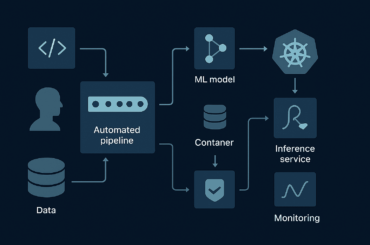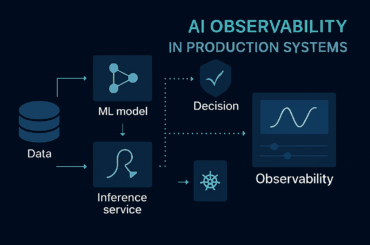Introduction to AI in Healthcare
Artificial Intelligence (AI) is revolutionizing the healthcare industry, bringing forth a new era of enhanced patient care and operational efficiency. With the ability to analyze and interpret vast amounts of data, AI technologies are transforming the way healthcare providers deliver services. By harnessing the power of AI, healthcare organizations can make better-informed decisions, improve diagnosis and treatment procedures, and ultimately save lives.
Benefits of Using AI in Healthcare
The integration of AI in healthcare brings numerous benefits to both patients and healthcare professionals. One of the key advantages is the ability to process and analyze large datasets, allowing for more accurate diagnoses. AI algorithms can analyze medical images, such as X-rays or MRIs, with greater precision, enabling early detection of diseases and better treatment planning. Additionally, AI-powered chatbots and virtual assistants can provide 24/7 patient support, answering questions, and offering guidance, thereby reducing the burden on healthcare staff.
Furthermore, AI can optimize treatment plans by considering a patient’s unique characteristics and medical history. Machine learning algorithms can identify patterns and trends in patient data, helping healthcare providers personalize treatment options and improve patient outcomes. By leveraging AI solutions, healthcare organizations can also streamline administrative tasks, such as scheduling appointments and managing electronic health records, freeing up valuable time for doctors and nurses to focus on direct patient care.
Use Cases of AI in Patient Care:
AI technologies have a multitude of applications in patient care. One of the notable use cases is in the field of radiology. AI algorithms can analyze medical images, such as CT scans, to detect abnormalities and assist radiologists in making accurate diagnoses. This not only speeds up the diagnostic process but also reduces the risk of human error. AI can also be utilized in remote patient monitoring, allowing doctors to track patients’ vital signs and symptoms in real time, enabling early intervention and preventing hospital readmissions.
Another area where AI shines is in precision medicine. By analyzing a patient’s genetic and molecular data, AI algorithms can identify personalized treatment options, ensuring that patients receive the most effective therapies. AI can also assist in predicting patient outcomes, helping doctors make informed decisions about treatment plans and prognosis.
Enhancing Operational Efficiency with AI in Healthcare:
AI has the potential to greatly enhance operational efficiency in healthcare organizations. Through process automation, AI technologies can streamline administrative tasks, such as billing and coding, reducing errors and improving productivity. AI-powered chatbots can handle routine patient inquiries, freeing up staff to focus on more complex tasks. Additionally, predictive analytics can help optimize resource allocation, ensuring that hospitals have the right number of staff and equipment available at all times, thereby reducing wait times and improving patient satisfaction.
AI can also play a crucial role in managing the vast amount of data generated in healthcare settings. By leveraging machine learning algorithms, healthcare organizations can analyze electronic health records, clinical notes, and research papers to extract valuable insights. This enables healthcare providers to stay up-to-date with the latest medical advancements, make evidence-based decisions, and improve overall patient care.
Machine Learning in Healthcare:
Machine learning solutions, a subset of AI, are revolutionizing healthcare by enabling computers to learn and improve from experience without explicit programming. This technology has numerous applications in healthcare, ranging from predicting patient outcomes to drug discovery. Machine learning algorithms can analyze vast amounts of patient data, identify hidden patterns, and make predictions about potential health risks. This allows healthcare providers to intervene early and provide personalized preventive care.
Machine learning is also transforming the field of genomics. By analyzing genetic data, machine learning algorithms can identify genetic markers associated with diseases, enabling early detection and targeted interventions. Furthermore, machine learning algorithms can analyze large-scale genomic datasets to accelerate the discovery of new drugs and therapies, revolutionizing the field of precision medicine.
Challenges and Limitations of AI in Healthcare:
While the potential of AI in healthcare is immense, it is not without its challenges and limitations. One of the key challenges is the ethical implications surrounding AI. Privacy concerns, data security, and patient consent are vital considerations when implementing AI in healthcare. Ensuring that patient data is securely stored and used only for its intended purpose is paramount.
Another challenge is the need for regulatory frameworks to govern the use of AI in healthcare. As AI technologies continue to advance, it is crucial to establish guidelines and standards to ensure the safe and ethical use of AI. Additionally, there is a need for transparency and interpretability in AI algorithms, especially in critical decision-making processes, to gain the trust of healthcare professionals and patients.
Future Prospects of AI in Healthcare
The future of AI in healthcare holds immense promise. As technology continues to advance, AI solutions have the potential to revolutionize various aspects of healthcare, including diagnostics, treatment planning, and personalized medicine. With the integration of AI, healthcare organizations can expect improved patient outcomes, reduced costs, and enhanced operational efficiency.
One area that shows great potential is the use of AI in drug discovery. AI algorithms can analyze vast amounts of biomedical data, such as scientific literature and clinical trial results, to identify potential drug targets and accelerate the development of new therapies. This could lead to the discovery of novel treatments for previously untreatable diseases and improve the overall efficacy of drug development pipelines.
Implementing AI in Healthcare Organizations
Implementing AI in healthcare organizations requires careful planning and consideration. It is essential to have a robust infrastructure to support the integration of AI technologies. This includes having secure data storage systems, efficient data processing capabilities, and skilled professionals who can interpret and act upon the insights generated by AI algorithms.
Collaboration between healthcare professionals and AI experts is crucial. By working together, healthcare providers can identify the specific pain points and challenges they face and develop AI solutions that address these needs. It is also important to involve patients in the development and implementation of AI technologies to ensure that their perspectives and concerns are taken into account.
Ethical Considerations in AI Healthcare
As AI becomes more prevalent in healthcare, ethical considerations become increasingly important. Patient privacy, consent, and data security must be prioritized to ensure that AI is used responsibly and ethically. Transparent communication with patients about the use of AI technologies and their potential benefits and risks is essential to gain their trust and cooperation.
Furthermore, bias in AI algorithms must be addressed. AI systems are only as good as the data they are trained on, and if the data is biased, the algorithms may perpetuate those biases. Efforts must be made to ensure that AI algorithms are trained on diverse and representative datasets to avoid perpetuating existing healthcare disparities.
Conclusion
The use of AI in healthcare holds tremendous potential for revolutionizing patient care and improving operational efficiency. From enhancing diagnosis accuracy to streamlining administrative tasks, AI solutions have the power to transform healthcare organizations. However, it is crucial to address the challenges and ethical considerations associated with AI to ensure responsible and beneficial implementation.
As we look towards the future, it is essential for healthcare professionals, policymakers, and technology experts to collaborate and establish guidelines that govern the use of AI in healthcare. By harnessing the power of AI responsibly, we can unlock its full potential and create a healthcare system that is more efficient, and personalized, and ultimately leads to better patient outcomes.





